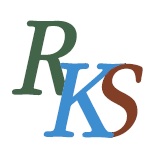Memories of Migrant Labor: Stories of Two Korean Nurses Dispatched to West Germany
Abstract
Making use of the oral life-history testimonies of two Korean nurses dispatched to West Germany (padok), this article analyzes what these women remember and how they give meaning to their migration experience. The memories and narratives of padok nurses were quite different from the dominant narrative on padok produced by the South Korean government, which emphasized the dispatched workers’ contributions to rapid economic growth and development of the nation. The memories of two Korean nurses that this article is based on, of course, do not represent all the memories of padok nurses. Nevertheless, their memories show us that their labor migration to West Germany was not forced upon them by government, but was, in large part, an individual choice made by the nurses themselves. The padok was important for the rapid economic growth of South Korea during the Park Chung Hee period. At the same time, West Germany, due to a shortage of labor in social service sectors, such as nursing, needed nurses from Korea. That is to say, padok nurses were indispensable to the social market economy of West Germany. The migration to Germany provided important opportunities for nurses seeking to escape from poverty and the fetters of patriarchy. The memories of these two Korean nurses reveal to us that the official narrative on the reasons and effects of padok in macro-historical terms do not fully capture the actual experiences of Korean workers. Therein lies the significance of padok women’s testimony about what they themselves remember and how today they evaluate their migration experiences and contributions. They deepen our understanding of the padok history of South Korea.
- keywords
- migrant women, memory, nurses dispatched to West Germany (padok ganhosa), oral history
참고문헌
Asan Sahoe Bokji Saeop Jaedan (Asan Foundation). 1988. Hanguk-ui chwi-eop: eoje,oneul, geurigo naeil.
Choe Jaehyeon. Ilsang saenghwal-ui iron-gwa nodongja-ui uisik segye: Seodokgeoju Hangugin nodongja-e daehan jiljeok josa yeongu-ui ye. Yeollinsahoehak-ui gwaje. Seoul: Changjak-gwa bipyeong.
Dong-a ilbo, 1959~1978
Jang Jaeyeong. 1971. Seodok-ui Hangugin: Seodok pagyeon Hangugin gwangbu-ui sugi. Seoul: Je 3 Chulpansa.
Chosun Ilbo, 1959–1978
Kim Munsil et al. 2003. Ganho ui yeoksa. Seoul: Daehan ganho hyeophoe.
Kim Sang-im. 2004. Sesang ilki: Hanguk-in padok ganhosa-ga malhaneun iju nodongja-ui sam. Nodong sahoe vol. 90.
Kim Yongchan. 2006. Hanin yeoseong nodongja gukje iju-wa yeoseong jojik-ui baljeon. In Hanguk Gukje Jeongchihakhoe, Hanguk gukje jeongchihakhoe haksul daehoe balpyo nonmunjip.
Kim Yongchul. 2006. Dogil arirang. Seoul: Esei.
Korea Broadcasting Company (KBS). Berlin-eseo 35-nyeon, padok ganhosa-ui kkum (video recording).
Kwon Ijong. 2004. Gyosu ga doen gwangbu. Seoul: Ichae.
Na Hyesim. 2008. Padok Hanin yeoseong iju nodongja-ui yeoksa. Seoyang saron vol. 100.
Na Hyesim. 2009. Dogil Hanin ganho yeoseong-ui nodong-ui seonggyeok. Dogil yeongu vol. 17.
Overseas Koreans Foundation (Jaeoe Dongpo Jaedan). 2003. Yureop Haninsa: Peurangseu-wa Dogil-eul jungsim-euro. Seoul: OKF.
Park Chan-gyeong et al. 2003. Dogil-ro gan saramdeul. Seoul: Nunbit.
Won Byeongho. 2004. Naneun Dogil-ui padok gwangbu-yeotta. Seoul: Hansom Media.
Yi Huiyeong. 2005. Iju nodongja-ui saeng-ae cheheom-gwa sahoe undong: Dogil-ro gan Hangugin 1-sedae-ui gusul saeng-aesa-reul jungsim-euro. Sahoe wa yeoksa vol. 68.
Yi Suan. 2008. Iju yeoseong-ui tajaseong-gwa gwan-yong-ui sangho balhyeon-e daehan ironjeok mosaek: jaedok Hanin yeoseong-ui iju jeongchak gwajeongeul jungsim-euro. Sahoe wa iron vol. 12.
Yi Sugil. 2007. Gaecheon-eseo naon yong. Seoul: Litopia.
Yi Suja. 2006. Jiguhwa-wa iju gwajeong-eseo balhyeon doeneun munhwa honseongseong: jaedok Hanin-gwa jaehan oeguin yeoseong-ui munhwa jeok-eung bigyo bunseokeul jungsim-euro. Handok sahoe gwahak nonchong vol. 16 no. 2.
Yi Yeongseok. 2008. Jae Dogil gyomin-ui Hanguk-e daehan gieok. Dogil eomunhak vol. 40.
Yi Yeongseok. and Park Jaehong. 2006. Jae Dogil gyomin-ui yeok iju-wa gwihyang uisik-e daehan yeon-gu: Namhae-gun “Dogil maeul” ipju gyomindeul-ui gyeong-u. Dogeo gyoyuk vol. 36.
Yi Yeongsuk. 2009. Nuguna gaseum sogen kkum-i itta:Dogil-eseo uisa-ga doen ganhosa iyagi. Seoul: Bukseukopeu.
- 다운로드 수
- 조회수
- 0KCI 피인용수
- 0WOS 피인용수


